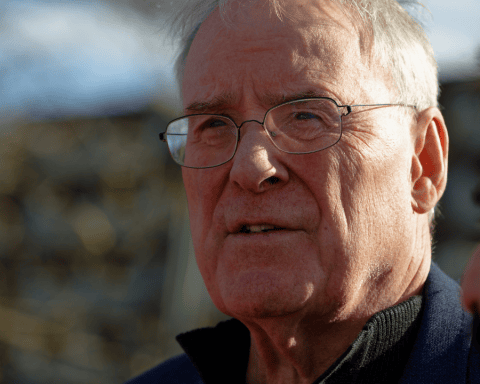Jenn Harper had spent 15 years working in wholesale food service and the hospitality sector and never dreamed of owning an internationally acclaimed beauty brand – until one night, she did exactly that.
“It was 2015, and I had this crazy dream about lip gloss and little native girls. I woke up in the middle of the night and started writing out all these ideas that came flooding from the dream.”
Her first thought was to create liquid lipstick to fund a scholarship in her grandmother’s name. Harper’s Anishinaabe grandmother was a residential school survivor and suffered great trauma as a result of the experience. Harper had a long-held desire to do something meaningful, something that would make an impact in her Indigenous community. But it wasn’t enough to create another line of lipsticks; she wanted to disrupt the $40-billion cosmetic industry. Harper wanted young Indigenous women to see themselves reflected in the products they used, to feel pride and “empowered to do great things.”
With social purpose and sustainability baked into the business model, Harper began seeking out investors to help her grow her fledgling business. After her third audition for Dragon’s Den, she was invited to pitch to the show’s panellists, thrusting her brand into the spotlight. When a “Dragon” offered her $125,000 for a 50% stake in her company, without hesitation she said, “No, thank you.”
It turned out Cheekbone Beauty had just been offered a $350,000 investment from Vancouver’s Raven Indigenous Capital Partners, a deal in which she maintained 100% ownership of the company, as well as $50,000 from Desjardins to create scholarships for First Nations children.
“We have a shared vision toward building economic reconciliation in Canada,” Raven managing partner Jeff Cyr said in a statement announcing the deal. “It’s inspiring Indigenous entrepreneurs like Jenn Harper, driving systemic change, and building dynamic and resilient Indigenous communities.”
Cheekbone Beauty is now in R&D mode, sharply focused on incorporating Indigenous knowledge and sustainability values into every aspect of its business. The company has set out to eliminate all single-use plastics and shift all raw ingredients to plant- or bio-based sources by 2023. The cruelty-free cosmetics company also donates 10% of proceeds to First Nations non-profits, including First Nations Child & Family Caring Society.
Cheekbone Beauty launched its new sub-line of Sustain lipsticks, packaged with 85% less plastic in recyclable paper tubes, in March 2020, right before the pandemic took the wind out of global lipstick sales. But while COVID affected the supply chain and operations, Cheekbone Beauty recovered quickly. The company saw a 350% increase in revenue in 2020 as media interest from Vogue, Elle and other major beauty magazines poured in. “Brands that focus on BIPOC communities really felt a big push in attention,” CEO Harper says from her office in St. Catharines, Ontario.
Representation matters. It’s important for Indigenous people to see themselves in the world around them, creating a sense of belonging. “Our North Star, our reason for getting up in the morning, is how our business is impacting and resonating with Indigenous youth,” Harper says.
“We want youth to see themselves in our products and know that they are beautiful and worthy.”
Shilpa Tiwari is the founder of Her Climb, a social enterprise with the mission to increase the number of racialized women in senior positions in corporations.





